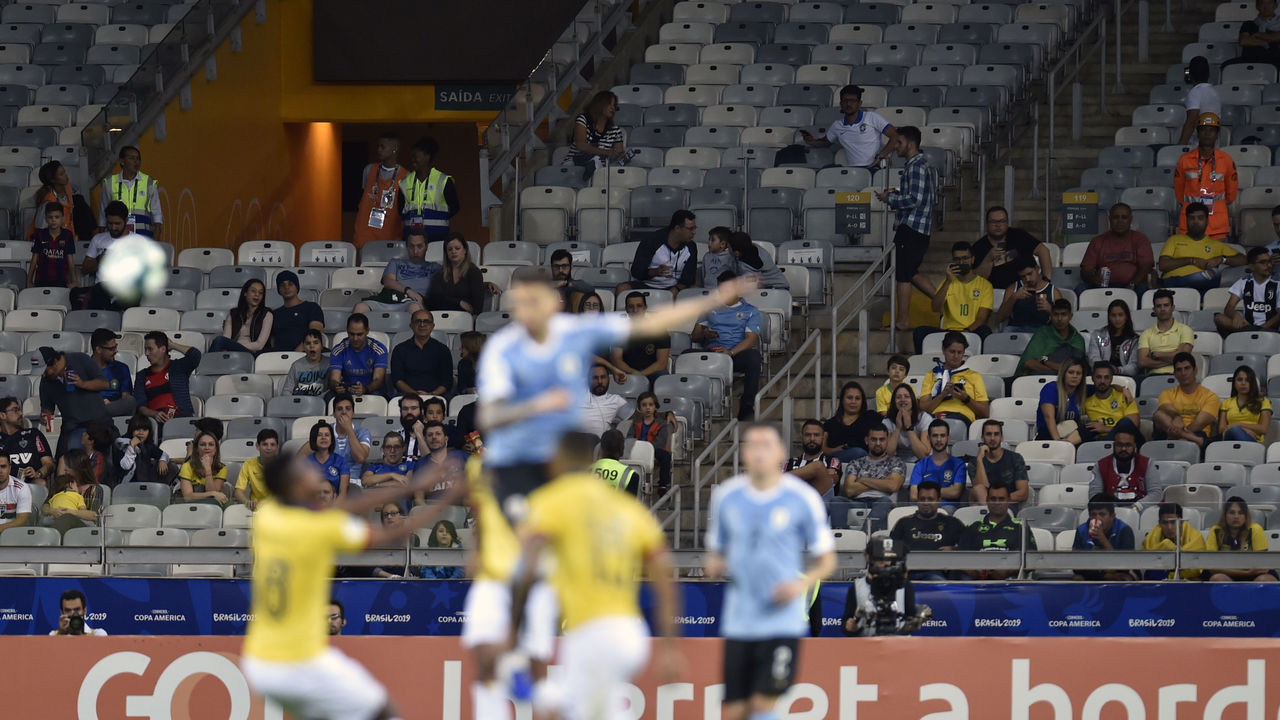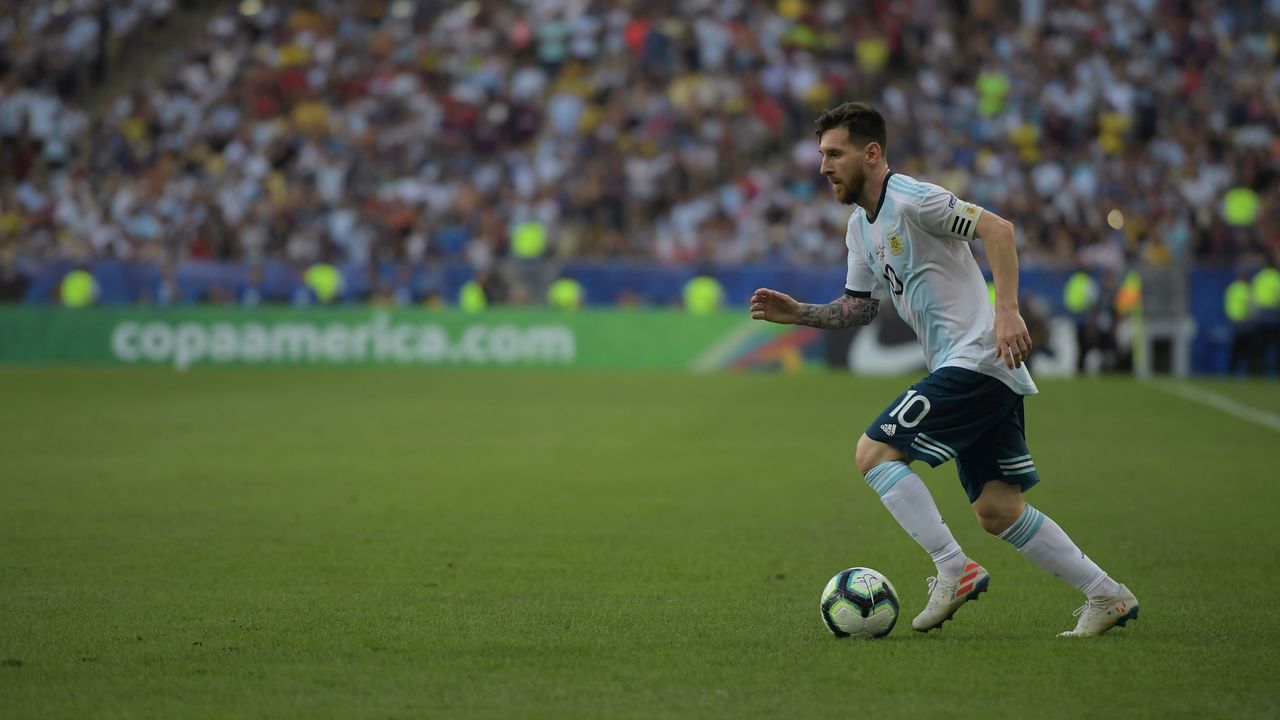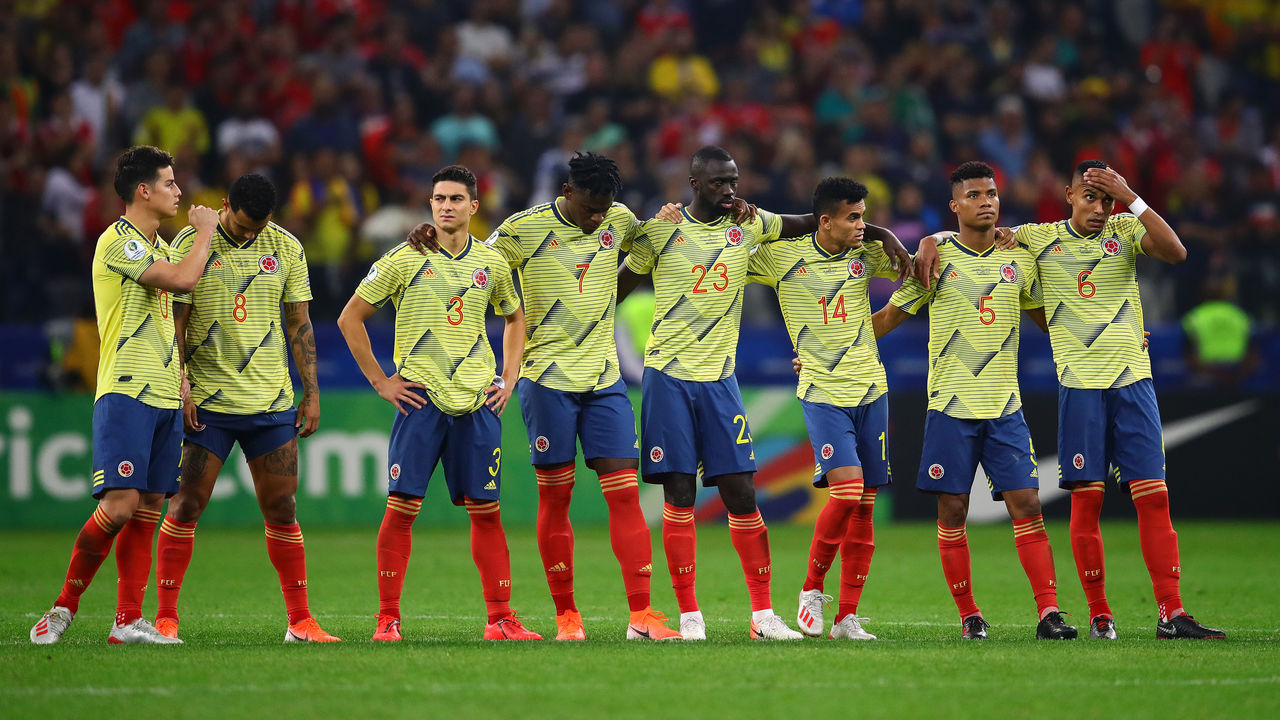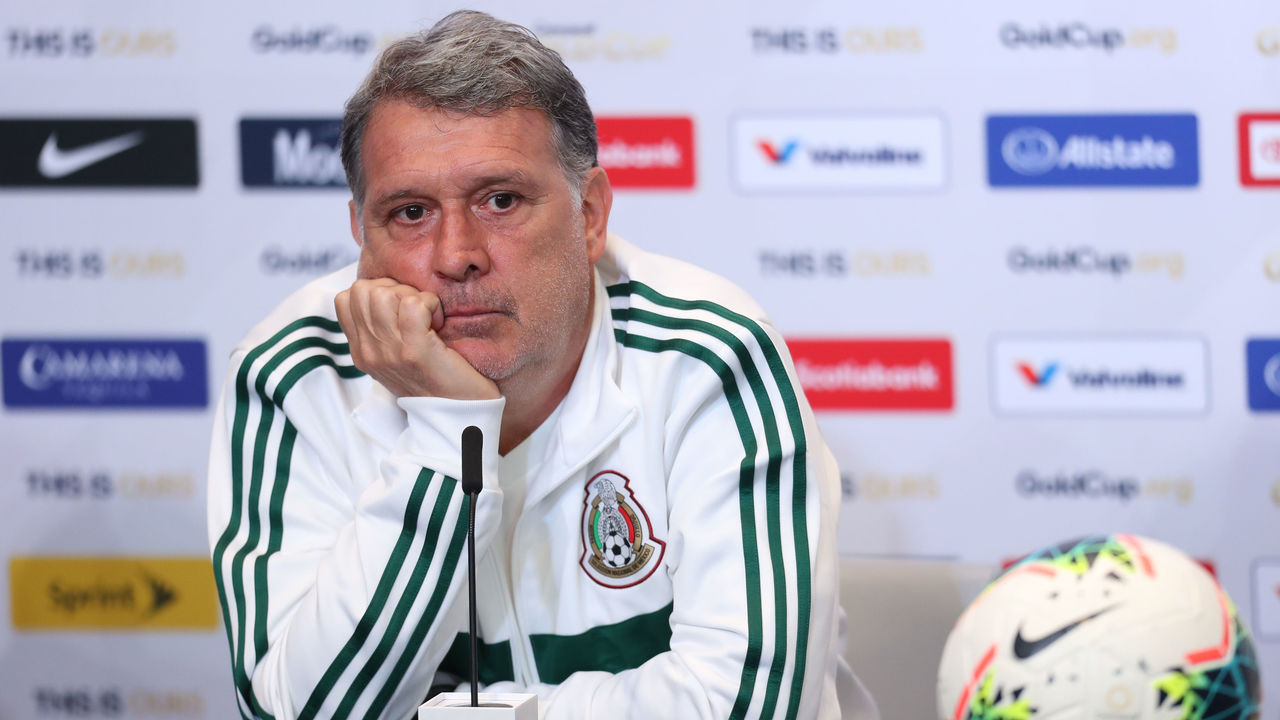5 biggest disappointments from 2019 Copa America so far
It hasn't been the best.
The 2019 Copa America is vying for attention with the Women's World Cup, Africa Cup of Nations, Gold Cup, and European Under-21 Championship this summer, and is, unfortunately, doing very little to attract supporters to the South American presentation.
The glittering and unpredictable performances that are usually commonplace at Copa America are currently at a premium as we prepare for the semifinals, and it's not just because we're waiting to see the best of Tite's Brazil, Lionel Messi, and the competition's other huge names.
Here are the five biggest disappointments of the 2019 Copa America so far:
Ticket prices

Even for the tournament opener between Brazil and Bolivia, there were empty seats scattered throughout Sao Paulo's Estadio do Morumbi. Plenty has been said about Brazil's current indifference to matters surrounding the men's national team but, ultimately, a significant portion of the country's population is shut out of the stadiums.
"The average ticket price for that first game was about £100, which every way you look at it is a lot of money, but especially once you consider the average wage here. If you're looking at a minimum wage (a ticket) is almost half of a monthly salary," South American football expert Jack Lang said on "The Totally Football Show" podcast.
Sadly, unless the football authorities step in, this pricing structure could be here to stay. Lang understood the Copa America curtain-raiser was the most profitable game in Brazil's football history at the time, so unless FIFA demands lower costs - staging a respected showpiece with players like Lionel Messi and Luis Suarez in front of unmanned pews is a bad look - only the privileged few will be able to attend international matches in South America.
"If you look at the crowd at that Brazil game, it's absolutely staggering how white it was. You could hardly see anyone from Brazil's black community there, which is a real shame and a scandal, really," Lang added.
Japan, Qatar shouldn't be the tourney's entertainers

Fans who tuned in to watch the unique cocktail of chaos and creativity that South American football regularly offers - the continent's World Cup qualifiers are often the most competitive and engaging - were instead forced to rely on the invited nations for some semblance of entertainment.
The most enjoyable games of the group stage? Paraguay 2-2 Qatar and Uruguay 2-2 Japan. It certainly wasn't an opening phase for football followers who like to hone in on individual brilliance, and that trend continued into the quarterfinals with three goalless draws and disjointed Argentina seeing off minnow Venezuela.
But, at least we had those two matches. At least we had a Qatari comeback spurred by Villarreal-owned Akram Afif. At least we had Al-Duhail's Shoya Nakajima and his Japanese teammates making Uruguay's usually watertight backline look incredibly porous with their intelligent, rapid movement and fancy footwork.
Many South American players, who fans initially tuned in to watch, simply looked fatigued after traveling to the competition following a demanding European club season.
Hopping balls

When Lionel Scaloni described the pitch for Argentina's 2-0 defeat to Colombia as "lamentable," it sounded like an excuse following an abject performance from La Albiceleste.
But those complaints have since been echoed by Brazil boss Tite and Messi.
"The pitches here are shameful," Messi complained following Argentina's 2-0 quarterfinal win over Venezuela. "The ball is like a rabbit, it can go anywhere. The conditions are very difficult and it's very hard to dribble properly. This cannot go on."
It's been disappointing to see players accustomed to bamboozling defenders with their trickery instead scampering after the ball like a rugby winger trying to corral the skipping leather ovoid. A continent famed for producing footballers of lush technical ability and mesmerizing inventiveness isn't giving them the platform to produce their very best.
Colombia's limp elimination

It started so well. Los Cafeteros' victory over Argentina to begin their campaign showcased their strength in midfield - Wilmar Barrios greatly enhanced his reputation by his excellent attempts to shut down Messi - and also depth in attack courtesy of substitutes Roger Martinez and Duvan Zapata.
Jefferson Lerma, a player who seldom sauntered upfield in his first season with Bournemouth, even assisted with an explosive run and a precise squared ball for Zapata. He's a criminally underrated player.
Colombia won all three of its matches in the group stage, with the third triumph predominantly constructed by second-choice players. It seemed Los Cafeteros were the team to beat.
But then Colombia played with little ambition against weathering Chile in the quarterfinals. Such a reluctance to attack is characteristic of a team coached by Carlos Queiroz, but fans will inevitably question the decision to hire the conservative tactician in February when managers such as Gerardo "Tata" Martino, Juan Carlos Osorio, and Luiz Felipe Scolari may have been attainable before then.
No Mexico

Mexico competed in every Copa America since 1993 before this year's edition. El Tri's absence is felt in Brazil and, given that the Gold Cup is running concurrently, highlighted the wide chasm that exists in the CONCACAF region.
During the Gold Cup group stage, there were four 4-0 scorelines, a 6-0, and two 7-0 embarrassments dealt to teams like Martinique, Guyana, and El Salvador.
Following the success of the UEFA (and, as it takes shape, CONCACAF) Nations League(s), it makes sense for the lower-ranking nations to improve themselves in competitive matches against one another, and then eventually earn the right to face sides like Brazil and Argentina in the Copa America.
"It seems to me that in time, one way or the other, we will get closer to a Copa America that is played between all the continent. When I say all the continent, I mean all the American continent," Mexico's Argentinian handler Martino said last week.
Qatar is again an invited participant in the 2020 Copa America and will be joined by Australia, but the big wigs at CONMEBOL must find a way to include Mexico, the United States, and one or two other CONCACAF nations to take part in every Copa America from then onward.